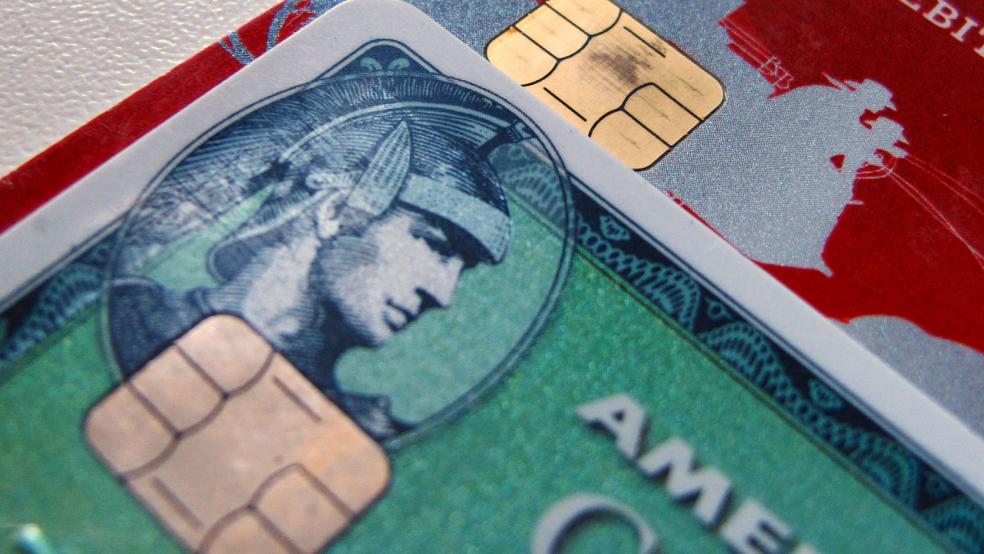Just when you thought there couldn't be another way to make Black Friday any more miserable for shoppers and retail employees, the credit-card industry came up with one.
Credit-card companies last month began to mandate new technology that uses chips instead of magnetic stripes. It's a change made for a very good reason: card security.
The credit-card industry self-imposed October 1 as the deadline for the new card readers, though many consumers had received chip-enabled credit and debit cards — which will still work on the old "swipe" card processors — long before that.
The timing of this wider rollout, however, has retail and payments experts warning that this will slow things down at the checkouts on the November 27 shopping day.
Related: Black Friday Shopping Guide: Who’s Offering Deals on Thanksgiving Day
"Any time you introduce a major change like this, there's going to be confusion," said Matt Schulz, senior industry analyst withCreditCards.com. "There's no question this is going to cause some slowdown on Black Friday."
The change itself is simple: Instead of swiping the card through the magnetic-strip reader, shoppers now have to insert it — chip side up — into a slot on the bottom of the device.
But here's where the delays come in. People who are unfamiliar with the process will swipe as they always have, then be told it didn't work because they have a new chip-enabled card. Then they must be shown how to insert it, and leave it in, so the payment can be processed.
Now multiply that by thousands, and add in the fact that people have been in line since the crack of dawn, elbowed their way to that bargain bin, and then had to wait again just to get to the register, and you can see why even a small delay will test patience. It's called the EMV chip, and it just might wreak havoc on holiday shopping.
Related: Your Credit Card Is Getting an Upgrade. Are You Ready?
A 'rude awakening' for retailers
"There is going to be a rude awakening" for retailers, said Jared Drieling, business intelligence manager for The Strawhecker Group, an Omaha, Nebraska-based advisory firm focusing on payments. "The industry is still bickering over how long an EMV transaction takes."
As many as 47% of US merchants will have new technology in place by the end of 2015, according to a survey conducted earlier this year by the Payments Security Task Force, an industry-backed group of financial services firms and leading retailers. Already, 40% of Americans have been issued new chip-enabled cards.
Of course the nightmare scenario that Drieling is warning about is dependent on a lot of factors. Some customers have been using the chip technology for weeks, and some retailers don't have the readers yet. There is a wide disparity in how individual retailers have gotten ready for the switch.
Best Buy, Macy's, and Walmart stores have been fully outfitted with new card readers, representatives for those companies said. Macy's and Walmart have also reissued store-branded credit cards with new EMV chips embedded in them. Sears, on the other hand, says it is "continuously working to further enhance the security of our systems," according to a spokesman — but declined to provide specifics for Black Friday.
Related: Your New Chip Credit Card: Everything You Need to Know
J. Craig Shearman, a spokesman for the National Retail Federation, said the new card readers would be at "most major retailers and large national chains." The progress of smaller shops in adapting the chips is not as clear, but those shops are less likely to be open the day after Thanksgiving anyway.
Shearman didn't argue with the notion that things could slow down, but he said it was not clear how much longer it would take to process each transaction.
For retailers, Black Friday and the ensuing weekend is crucial to performance. Americans packed malls and stores last year after Thanksgiving, driving more than $50 billion in revenue to retailers, the National Retail Federation reported in 2014.
Of course, there are lots of ways to avoid even having to find out. Stay home. Turkey and stuffing is better on day two anyway.
This piece originally appeared in Business Insider. Read more from Business Insider:
15 high-paying jobs you can do on the side




